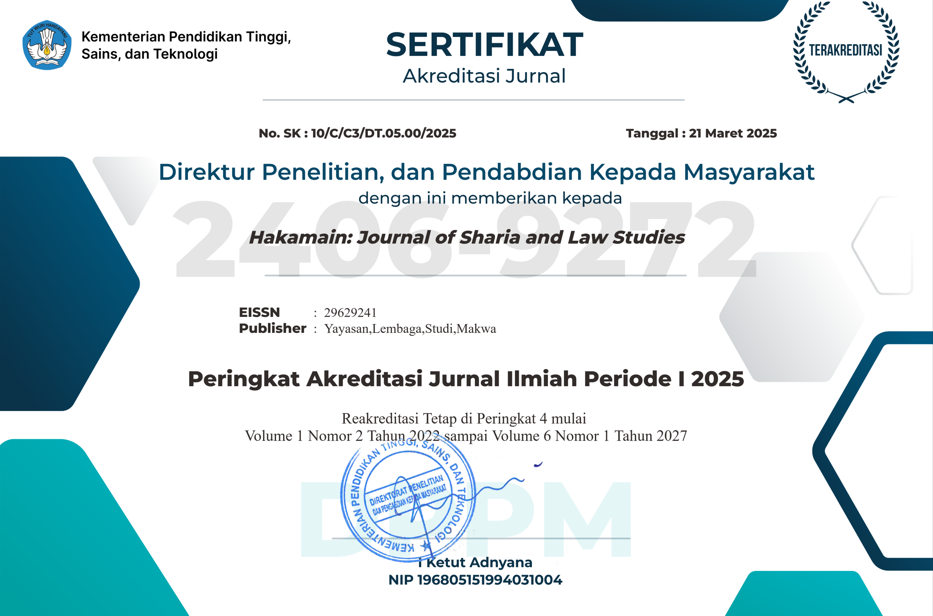
Artificial Intelligence Policy
Guidelines for Responsible AI Usage in Hakamain : Journal of Sharia and Law Studies
For Author
1. Ethical and Responsible Use
- Authors are required to clearly state any use of artificial intelligence (AI) tools in the research process, including in data collection, analysis, or writing assistance. Proper attribution must be provided for any AI-generated content integrated into the manuscript.
- Authors must comply with applicable privacy regulations and obtain informed consent if AI tools are used for handling personal or sensitive data.
- It is the author’s responsibility to recognize and mitigate potential biases within AI systems to ensure that the research outcomes remain fair, valid, and impartial.
- All content derived from AI tools must respect existing intellectual property and copyright laws.
2. AI in Research Methodology and Data Analysis
- Authors should critically assess the appropriateness of using AI tools in line with their research objectives, particularly in terms of tool accuracy, reliability, and compatibility with the field of coaching and sports science.
- Results derived using AI assistance must be validated using standard research protocols to ensure scientific rigor and reproducibility.
- The journal encourages the use of interpretable AI models—tools that offer explainable outputs—to support clarity in research methodology and foster a deeper understanding of the findings.
3. Academic Integrity and Originality
- Any assistance from AI must be transparently acknowledged in accordance with accepted academic citation standards.
- Manuscripts submitted to Hakamain : Journal of Sharia and Law Studies must reflect the authors’ original contributions, analytical thinking, and scientific creativity, and should not rely solely on AI-generated content or formulations.
4. Transparency in Peer Review and Collaboration
- Authors are expected to disclose AI usage during the peer review process and when engaging with co-authors or collaborators. This ensures transparency and supports academic dialogue.
- Collaborative research teams should establish clear agreements regarding the use of AI tools, data handling, and authorship attribution from the outset of the project.
For Reviewers
Reviewers should treat submitted manuscripts as confidential documents. Uploading the manuscript into AI tools may violate confidentiality, proprietary rights, and data privacy, especially if personally identifiable information is present. Reviewers are fully responsible for the content of their reviews.
For Editors
Editors must treat manuscripts as confidential documents and refrain from uploading them into generative AI tools to avoid violating confidentiality and privacy rights.




